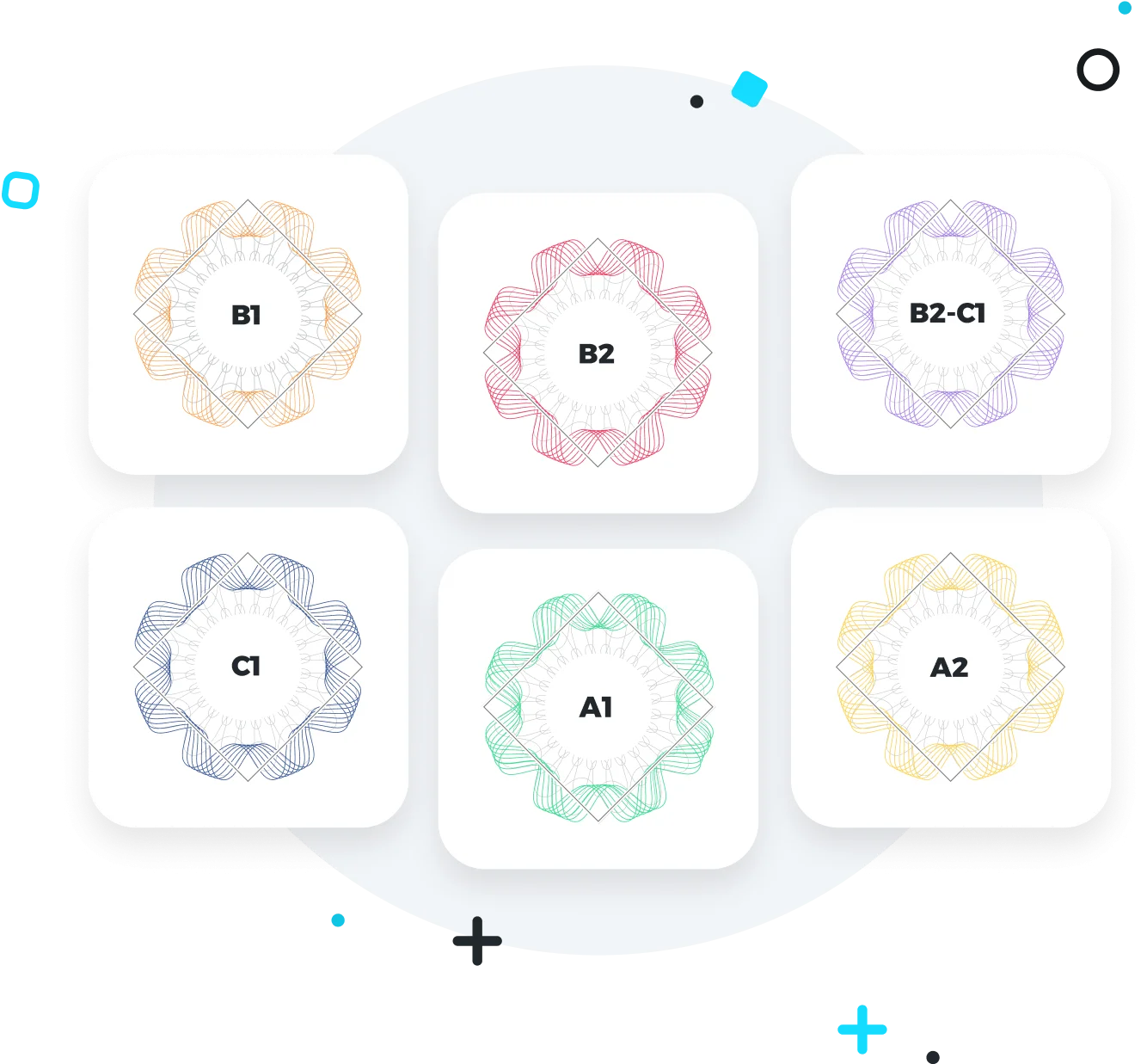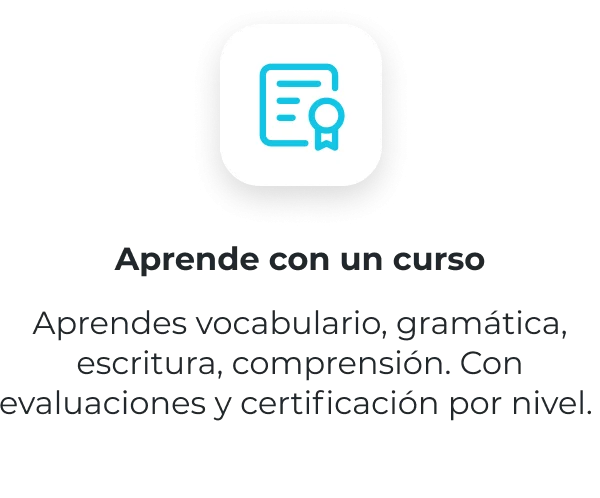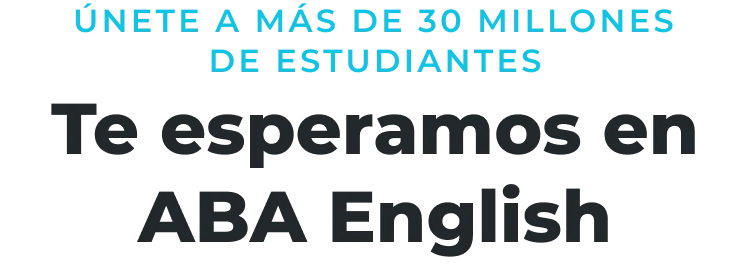Futuro perfecto continuo en inglés
Encuentra todas las claves para usar el future perfect progressive, con ejemplos claros y ejercicios. Regístrate gratis en ABA English y disfruta cada día de una nueva video clase de gramática gratuita
En este artículo vamos a revisar la estructura del future perfect progressive en inglés, en qué consiste y cuáles son sus usos. Miraremos tiempo verbal para oraciones afirmativas, negativas, e interrogativas, así cómo las diferencias que tiene con el future perfect.
¿Qué es y cuándo se usa el futuro perfecto continuo?
future perfect progressive, también llamado future perfect continuous, es el tiempo verbal en el que usamos el will have been. Se emplea para narrar acciones que comenzaron en algún tiempo indeterminado y aún no han concluido en el futuro del hablante.
Dicho de otro modo, usamos el future perfect continuous para enunciar acciones que están transcurriendo en el futuro, pero que aún no han dado inicio al momento de la enunciación. Normalmente estas oraciones están complementadas por conjunciones de tiempo.
Ejemplos:
- Eliza will have been married for five years by the time the baby is born. (Eliza habrá estado casada por cinco años para cuando nazca el bebé)
- George will have been working in the library for half his life when he gets his degree. (George habrá estado trabajando en la biblioteca por media vida cuando reciba su grado)
+30 MILLONES DE ESTUDIANTES
Únete a la academia digital de inglés
más grande del mundo y aprende inglés
Estructura del futuro perfecto progresivo (will have been)
Para construir oraciones en en future perfect continuous hacemos uso del verbo auxiliar modal will, seguido de la construcción have been, el verbo en gerundio para indicar la continuidad de la acción, y finalmente el complemento.
Veamos esto en detalle para las oraciones afirmativas, negativas, e interrogativas.
Future perfect continuous en afirmativo
Para construir oraciones afirmativas en el future perfect continuous, indicamos el sujeto seguido del will have been, el verbo principal en gerundio, y finalmente el complemento de la oración.
La estructura gramatical queda entonces como sigue:
Sujeto + will + have been + verbo(ing) + complemento
Ejemplos:
- They will have been together for two years by the time he finishes college. (Ellos habrán estado juntos por dos años para cuando él termine la universidad)
- My lawyer will have been fully informed when you arrive. (Mi abogado habrá sido informado completamente cuando tú llegues)
Futuro perfecto continuo en negativo
En el future perfect continuous, la forma negativa se obtiene negando el auxiliar de futuro will (will not o won’t, de forma abreviada).
La estructura de las oraciones en este tiempo se expone a continuación:.
Sujeto + will not (won’t) + have been + verbo(ing) + complemento
Ejemplos:
- She won’t have been studying until I come home. (Ella no habrá estado estudiando hasta que yo vaya a casa)
- They won’t have been dancing all night. (Ellos no habrán estado bailando toda la noche)
Futuro perfecto continuo interrogativo
Para construir oraciones interrogativas usando el future perfect continuous, ubicamos el verbo auxiliar will delante del sujeto en la oración, y en caso de que esta sea negativa, la negación recae sobre este auxiliar.
Veamos entonces la estructura gramatical:
Will /won’t + sujeto + have been + verbo(ing) + complemento + ?
Ejemplos:
- Will you have been playing long when I arrive? (¿Habrás estado practicando durante mucho tiempo cuando yo llegue?)
- Won’t the TV have been working by then? (¿La TV no habrá estado funcionando para entonces?)
¿Conoces tu nivel
de inglés?
Haz un test ahora.
Regístrate en nuestra página y accede gratis al test de nivel. En pocos minutos conocerás tu nivel y podrás seguir avanzando con el curso.

Diferencia entre future perfect continuous y future perfect simple
A simple vista podría presentarse alguna confusión para distinguir entre cuándo usar el future perfect continuous y el future perfect.
Pero mientras que el primero habla de acciones que comienzan en un tiempo en el futuro y están transcurriendo cuando se están narrando los hechos, el future perfect nos sirve para enunciar sucesos que tienen su origen en el futuro, pero que ya habrán finalizado para el hablante en un futuro posterior al inicial.
Veamos esto comparando las estructuras gramaticales en la siguiente tabla:
| Tiempo Verbal | Estructura | Ejemplo |
| Future perfect continuous | Sujeto + will + have been + verbo(ing) + complemento | When you cut the cake, I will have been filming. (Cuando cortes el pastel, habré estado filmando) |
| Future perfect simple | Sujeto + will + have + verbo en pasado + complemento | When you cut the cake, I will have filmed. (Cuando cortes el pastel, habré filmado) |
Oraciones en el futuro perfecto progresivo
- By this time tomorrow, I will have been leaving. (A esta hora mañana, me estaré yendo.)
- Next month, she will have been painting for 5 years. (El mes que viene cumplirá 5 años pintando.)
- By the end of this pregnancy, Shania won’t have been gaining enough weight. (Para el final de este embarazo, Shania no habrá estado ganando suficiente peso)
- In December, he will not have been building his house for even a year. (En diciembre, no habrá estado construyendo su casa ni siquiera un año.)
- How long will they have been knocking at the door? (¿Cuánto tiempo habrán estado llamando a la puerta?)
- Will you have been leaving when my parents come? (¿Te estarás yendo cuando mis padres lleguen?)
Ejercicios para practicar el future perfect progressive
Ejercicios en afirmativo
Vamos a poner en práctica lo visto hasta ahora con el future perfect continuous. En esta sección, diligencia los espacios con la forma correcta del verbo entre paréntesis para formar oraciones en future perfect continuous:
- The students __________ (present) the exam when the school bus arrives.
- The candidate __________ (expose) his proposal when the town assembly begins by this time tomorrow.
- In June next year, I _________ (live) in this town for twelve years.
- I ________ (celebrate) my fifty-year anniversary when my daughter returns.
- They __________ (audit) my company for two weeks when I come back from vacation.
Respuestas:
- will have been presenting
- will have been exposing
- will have been living
- will have been celebrating
- will have been auditing
Ejercicios en negativo
Completa las oraciones negativas en future perfect continuous utilizando el verbo que se encuentra entre paréntesis:
- When we arrive at the airport, the plane ________ (leave).
- When Sonia graduates from the university, she _________ (work) in the hospital for a long time.
- I ___________ (travel) around Europe for three months by the end of the summer.
- Daniel __________ (retire) by this time next year.
- The two families ________ (reconcile) with dessert at the engagement party.
Respuestas:
- will not (won’t) have been leaving.
- will not (won’t) have been working.
- will not (won’t) have been traveling.
- will not (won’t) have been retiring.
- will not (won’t) have been reconciling.
Ejercicios en interrogativo
Forma oraciones interrogativas en future perfect continuous usando las palabras clave que se indican a continuación:
- The children/attend/school when the appointment is scheduled.
- Paul/dance/with his partner for enough time by the time the contest begins.
- The protesters/clear/the roads by nightfall.
- The Johnssons/live/in the same neighborhood next fall.
- Vivian and Andrew/not speak/to each other at the party.
Respuestas:
- Will the children have been attending school when the appointment is scheduled?
- Will Paul have been dancing with his partner for enough time when the contest begins?
- Will the protesters have been clearing the roads by nightfall?
- Will the Johnssons have been living in the same neighborhood next fall?
- Will Vivian and Andrew not have been speaking to each other at the party?
Otros enlaces de tu interés:


























